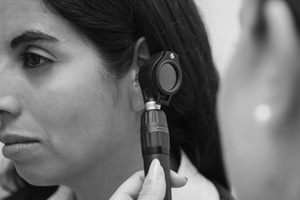View the complete list of conditions
How to Allergy-Proof Your Home from Indoor Allergens
For those who suffer from seasonal allergies, fall can be unpleasant due to the increase in allergens inside the home. Common fall allergens like mold spores, dust mites and ragweed pollen make life miserable for over 50 million Americans, with symptoms that linger until cold temperatures make pollen-producing plants go dormant or die off. In addition, leaves and garden debris on the ground may become moldy, adding to airborne allergens. People bothered by allergens may begin taking allergy medications at this time or seek medical help to obtain relief from symptoms.
Solutions for Allergies
In addition to medications and medical solutions, there are actions to take within the home to keep indoor allergens out and help alleviate the symptoms of fall allergies. These strategies can make life more comfortable until colder temperatures arrive, signaling an end to the fall allergy season. This discussion will consider what allergies are and how allergy sufferers can help allergy-proof their homes.
What are Allergies?
Allergies are bodily symptoms such as hives, itchy or watery eyes and nose, sneezing, rashes, wheezing and other signs that occur when the immune system over-reacts to ordinarily harmless triggers in our environment called allergens. Common allergens include:
- Mold
- Dust mites
- Pollen
- Animal dander
- Insect and rodent droppings
- Trees
- Grasses
- Foods
- Latex
- Medications and more
Allergies are common, and more than 20% of all Americans are affected by at least some allergy. Allergies may begin at any age. Untreated allergies can impact the quality of life and lead to secondary bacterial lung, skin or sinus infections.
An allergic reaction happens when a susceptible person comes in contact with one of the triggers mentioned above by inhaling it, swallowing it, or touching it. When the body senses the presence of an allergen, it begins to manufacture a particular protein called an antibody that counteracts the allergen.
At the same time, histamine and other chemicals are released into the bloodstream, causing the noticeable symptoms generally associated with allergies. The symptoms experienced in an allergic reaction depend on the specific allergen and type of exposure. Allergic symptoms can range from mildly annoying to life-threatening.
For instance, if you have a nasal allergic response (allergic rhinitis) triggered by inhaling an allergen, you could experience a runny nose, sneezing, coughing, wheezing and itchy, watery eyes. Likewise, an allergic skin response might manifest as itching, rashes or hives. Food allergies can cause an itchy throat; swollen mouth, lips or tongue; vomiting; diarrhea; stomach cramps; hives; or rash. In addition, people allergic to insect venom may experience varying degrees of swelling and redness.
When people are exposed to allergens, the degree of symptoms felt can range from mild to severe. Mild symptoms may be virtually unnoticeable, whereas moderate symptoms are easily identifiable because they cause a sick feeling, much like a cold or the flu.
Severe allergic reactions (known as anaphylaxis) can be life-threatening. This extreme allergic reaction can affect the entire body, producing rashes and hives in numerous locations, difficulty breathing, tingling in the hands or feet, throat constriction, loss of consciousness or death. People experiencing this extreme allergic reaction are in immediate medical danger and need emergency medical treatment.
Reducing Allergens in the Home
Allergy sufferers have more control over their home environment than over work, school or outdoor environments. To keep your home as allergen-free as possible, you can take several steps:
- Keep windows and doors closed – to reduce the amount of pollen entering the house. Instead of opening a window at night, consider using a fan or air conditioner for comfort in order to keep pollen and allergens outside.
- Change your clothes and wash them before wearing them again – to avoid adding more allergens to your home. After spending time outdoors, your clothes will likely have allergens on them. For the same reason, you should avoid hanging your clothes outside to dry because they may be coated with pollen and other airborne allergens.
- Change the filters in your air-conditioners and furnace – so that any pollutants or contaminants are not being recirculated throughout the home. Use high-quality filters designed to trap more particles.
- Wash your bedding regularly – as well as pillows and dust ruffles, to remove any allergens that have settled on them. Try to limit items that collect dust but are challenging to wash, such as stuffed animals, throw pillows, fabric upholstery, drapery and carpeting. Instead, use leather, vinyl, wood blinds and washable rugs.
- Frequently clean the house and dust surfaces – making sure to use a damp cloth or disposable dusting tool designed to trap dust rather than move it around. Vacuuming regularly will pick up allergens from rugs, floors and upholstery. Use a vacuum with a HEPA (high-efficiency particulate air) filter to trap airborne allergens.
- Limit the number of houseplants – in your home if you have mold allergies since the soil and leaves can harbor mold. Also, address damp basements and repair leaks to help prevent mold growth inside your home.
- Bathe pets as often as possible – or use special pet wipes to eliminate dander and outdoor allergens they may carry in on their coats.
- Consider investing in HEPA filter units – that run continuously in your home (especially in bedrooms) to remove as many airborne allergens as possible. Also, many cars now come equipped with cabin air filters; be sure to change them regularly.
Dr. Cohen will work with you to develop a treatment plan and strategies to help you manage seasonal and indoor allergies. Contact our office to set up an appointment.
Conditions
Ears
Nose
- Ballon Sinusplasty Surgery
- Concha
- Deviated Septum Relief In NYC
- Deviated Septums
- Fixing a Deviated Septum
- Identifying A Deviated Septum
- How Do I Know if My Nose is Broken?
- Nasal Polyps
- Nasal Polyp Surgery
- Nasal Septums
- NYC Nasal Polyp Reduction
- Septoplasty And Turbinate Surgery
- Treating a Deviated Septum
- Treating Nasal Polyps
- Turbinate Reduction
Throat
- Dysphagia
- Leukoplakia Treatments
- Reflux Laryngitis
- Swallowing Disorders
- Treating Anosmia
- Vocal Disorders
Allergies & Asthma
- Dealing With Allergic Rhinitis
- Managing Allergies and Asthma
- How to Allergy-Proof Your Home from Indoor Allergens
Sinus
- Chronic Sinusitis Treatment
- Endoscopic Sinus Surgeries
- Sinus Headache Cure
- Sinus Infection Treatment
- Sinusitis Surgery
- Treating Sinus Infections
Sleep & Snoring
- Diagnosing Sleep Disorders
- Having Trouble Sleeping
- Home Sleep Studies
- Pillar Implants
- Pillar Treatment for Snoring
- Sleep Apnea Conditions
- Sleep Apnea Specialists
- Sleepless in NYC
- Sleep Study Diagnosis
- Can Snoring Cause Health Issues?
- Treating Sleep Apnea
- Treating Snoring
- What is a CPAP Device?





